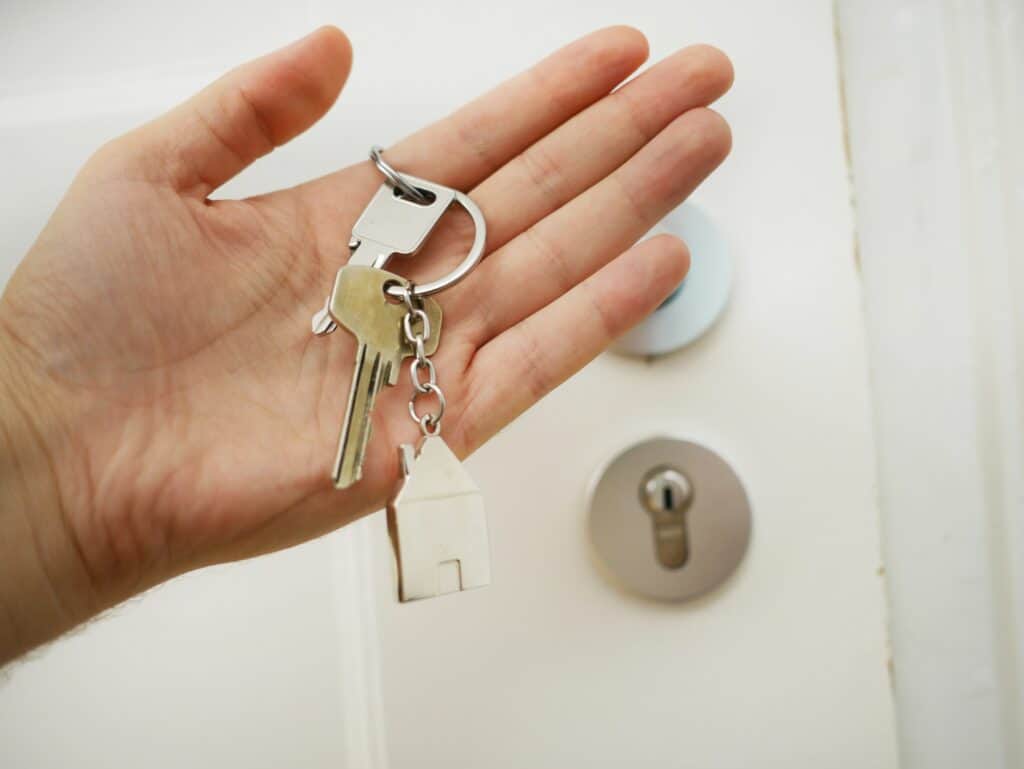Lease Extension Solicitors in Essex – Romford, Brentwood, Upminster
What is a Lease Extension?
Definition of a lease extension
If you own a flat with a long lease, letting the lease run low can cause your flat to decrease in value, and impact the future marketability of your property. The way to circumvent this is to extend your lease. There are two ways in which you can do this, and this is via the informal route (an agreement reached with your landlord) or the statutory route (where a notice is served under the Leasehold Reform Housing and Urban Development Act 1993.
Who can grant a lease extension?
Qualifying tenants have a statutory right to extend their lease for an additional term of 90 years. You will have to pay a premium for the lease extension, which is calculated by a surveyor, who specialises in the field of lease extensions.
The statutory procedure obliges a freeholder to deal with your request, but you can contact your landlord on an informal basis to see if they would be willing to extend your lease and if so whether you can agree the terms. This may save you costs and time.
How long can you extend your lease?
Under an informal lease extension whereby terms are agreed with your landlord any extension can be agreed. Where you serve notice on your landlord to invoke a statutory lease extension under the Leasehold Reform Housing and Urban Development Act 1993 then you will be entitled to a 90-year extension. This will result in you having an additional 90 years plus your unexpired term on your lease.
Importance of extending a lease
The significance of extending your lease is that a lease is a diminishing asset. This means that it decreases in term of years each year on the annual commencement date. If a lease falls below 80 years you will pay what is known as “marriage value” on the premium for the lease extension currently. This significantly increases the premium payable to your landlord for a lease extension. Similarly, lenders are usually uneasy at lending money to purchase a property with a lease that has an unexpired term of years lower than 85. Therefore, if you allow your lease to run low on years this can have a negative impact on the salability and the value of your property. Extending your lease ensures that you are safeguarding the investment made in your leasehold property.
When can you apply for a lease extension?
An informal lease extension can be agreed at any time with your landlord. Currently under the Leasehold Reform Housing and Urban Development Act 1993 you have to have been the registered owner of a leasehold property for a minimum of two years prior to you serving notice on your landlord requesting a statutory lease extension.
What is Collective Enfranchisement?
Collective enfranchisement is the process by which a group of leaseholders in a block serve notice on their freeholder compelling them to sell them the freehold.
You are entitled to do this provided that there are at least two flats in the building and at least two thirds of the flats are let to long leaseholders and not more than 25% of the building is non-residential. At least 50% of the leaseholders must take part in the claim.
Benefits of Extending a Lease
The benefit of extending your lease is that it safeguards the value of the property. If your lease falls below 85 years, some lenders will not agree a mortgage on the property, so if you come to sell this impacts the value. This can also mean that you cannot remortgage.
Another benefit of extending your lease is that an extended term cannot, under an informal lease extension, have a ground rent. If you embark on a statutory lease extension then the ground rent is reduced to one peppercorn per annum (£0) from the date of completion of the lease extension.
Consequences of not extending a lease
What happens if you don't extend your lease?
If you do not extend your lease it can become difficult to sell, and or remortgage. This has a further consequence of a negative impact on the value of your property.
Importance of seeking professional advice
The lease extension process may seem overwhelming but our specialist team can provide you with assistance and advice at each stage. We have experience of acting for both freeholders and leaseholders in statutory and informal lease extensions. At Mullis & Peake we have a Senior Associate who specialises in Leasehold Enfranchisement.
Types of Lease Extensions
There is what is known as an ‘informal Lease Extension’ whereby terms of the new lease are agreed directly with your landlord. There is also the ‘formal or ‘statutory’ lease extension where a qualifying tenant can serve notice on their landlord compelling then to extend the lease if they meet the criteria set out in the Leasehold Reform Housing and Urban Development Act 1993.
Residential Property Enquiry
Fill out the form and a member of our team will get in touch to discuss how we can help.
Statutory Lease Extension
Eligibility requirements
Under the Leasehold Reform Housing and Urban Development Act 1993 (‘the Act’) a leaseholder has the right under law to extend their lease by adding a further 90 years to the unexpired lease term and reducing the ground rent to a peppercorn, provided that they have been the registered proprietor for a minimum of two years. This means the date registration was effected at HM land Registry and not the date on which the purchase of the property was completed.
They must also be a ‘long leaseholder’ meaning they have a lease that was granted for a term of more than 21 years.
The property must also fit within the definition of a ‘flat’ under the Act. Leaseholder who own houses can extend them under a different Act which also has different criteria requirements.
Process and timeline
You will need to have a valuation carried out by a surveyor who specialises in this field. We can provide a list of surveyors who our firm has previously worked with who will be able to assist you with this. Once a valuation has been carried out by a surveyor this will indicate a figure which is to be put forward in the initial notice to the landlord (also known as the Section 42 Notice). The valuation report usually provides you with both the minimum and maximum premium which you can expect to pay for the lease extension.
We would then draft the Section 42 notice which is to be served on your landlord. The notice needs to give a minimum of 2 months for the landlord to serve a Counter Notice. The Counter Notice will either admit or reject the claim and put forward alternative proposals for items contained within the section 42 notice such as premium.
The parties then have six months from the date of the Counter Notice to agree all terms (lease and premium). If terms are not agreed in this time frame then an application can be made to the Property Tribunal for them to determine the same.
The Role of a Lease Extension Solicitor
Once a valuation has been carried out and it has been confirmed that you meet the criteria to extend your lease under the Act, the next step will be for Mullis & Peake LLP Solicitors to draft the initial (Section 42) Notice. This will be served upon your landlord informing them that you would like to extend your lease under the Act, the premium you propose paying and any other proposed terms. The Notice is an extremely important document which needs to contain specific information about you and your property. If the Notice is not accurate it can be deemed invalid and you will be time barred for a year prior before you can serve a further notice, during which time your premium is likely to increase.
The lowest figure put forward by your surveyor in their report for the premium will be inserted into the Notice. Once the Notice is drafted we will then send this to you for you to review, sign and return to us. We will then carry out final checks on your landlord’s title to ensure nothing has changed before serving the Notice. The Notice will also be served on any other party to your lease such as a management company. Upon the Notice being served we will make an application to HM Land Registry for an entry to be placed against the landlord’s title evidencing that you are exercising your right under the Act and to protect your position. This will put any potential buyers of the landlord’s title on notice of your right to extend your lease.

Preparing and serving the Section 42 notice
Once the section 42 Notice has been served you will immediately become liable for your landlord’s legal and surveyor costs even if you then chose to withdraw from the transaction. The landlord is also entitled to request that a deposit of 10% of the proposed premium from your Section 42 Notice be paid to them within 14 days of the request. It is likely that your landlord will instruct their own surveyor to carry out a valuation for them in order for them to check the premium properly payable and the landlord will either accept your offer or, as is more likely, serve a Counter Notice with their suggested premium and terms. The surveyor may want access to the flat to carry out an inspection and you will need to permit this so please be prepared for it.

Counter Notice
From the date of the Section 42 Notice being served by Mullis & Peake, your landlord will have a minimum period of two months to serve a Counter Notice. The Counter Notice will state if they accept that you are permitted to extend under the Act and also which parts of the Notice they do and do not agree with. More importantly the Counter Notice will state the premium which they expect you to pay for the lease extension which is usually a higher figure than that proposed in the Section 42 Notice.
Negotiating the premium with the landlord
From the date of the Counter Notice you will have a strict deadline of six months under the Act to negotiate and agree the terms, to include the premium payable. Negotiations in relation to the premium are carried out by the parties’ surveyors. During this time, we will be in contact with the landlord’s solicitors in order to start negotiating the form and wording of the lease.

What happens when there is no agreement?
Where a settlement is not reached within six months from the date of the Counter Notice an application to the Property Tribunal will need to be made. This must be made within the six-month window (but not earlier than two months after the Counter Notice is received) in order to protect the Section 42 Notice and for the Tribunal to determine the terms. If an application is not made within this time, then the initial Notice will be deemed to be withdrawn and again, you will be time barred from serving a further notice for one year. Upon making an application to the Tribunal, we can request that the proceedings be stayed for a further three months to allow for additional negotiations to take place. However, the landlord’s solicitors will need to agree to this also. Once proceedings have been issued, the Tribunal will then set a timetable for exchange of information and draft leases to be agreed. If a settlement is still not reached, then the Tribunal will set a date for a hearing. It is rare for matters to go to a Tribunal hearing. Most are settled beforehand. Upon all terms being agreed, we will complete the lease extension to register it at HM Land Registry.

An Informal Lease Extension of a Flat
An informal lease extension is where the terms of a new lease are agreed with the landlord without the need for serving notice under the Act. This can be used where, for example you have not been the registered proprietor for two years and do not qualify to exercise the statutory route.
Under the informal route the parties are free to agree any terms in relation to the following:
- Term: How long the lease is to be extended by
- Premium: The premium payable for the lease extension
- Form of Lease: Any additional clauses or amendments to your current lease
- Costs: The costs of the landlord in relation to the informal lease extension
There is no set time frame for informal leases and sometimes due to this, and because the parties are free to agree any terms in relation to the new lease, this can mean that the process is as long as that of the statutory process above. Further, the lack of set time frame means that there is no obligation on the landlord to act quickly, or at all. Expert advice should be sought from a surveyor who specialises in lease extensions with regards to the premium payable. If your property is subject to mortgage finance, then the consent of your lender will also need to be obtained. Your lender may charge a small administrative fee for considering the matter and they will require you to enter into a Deed of Substituted Security (which essentially attaches the mortgage to the new lease rather than the old, shorter lease).

On agreement of terms
Once terms are agreed between you and your landlord, your landlord will usually instruct solicitors who will ask for an undertaking for their costs. We will then ask you to put us in funds for this amount so that we can provide them with this undertaking. This may include their surveyor costs if these have not been paid by you already. Once an undertaking is given the costs will be payable even if you later chose to withdraw from the transaction. The landlord’s solicitors will then provide us with a draft lease based on the terms agreed. We will review this document and propose any necessary amendments. If you have a mortgage over the property we will also write to the lender to obtain their consent. Once the draft lease is agreed this will be sent to you along with the Deed of Substituted Security from your lender (if applicable) for your signature. Once we are in receipt of the signed documents from you we will propose a date for completion and request funds from you. On completion we will then make an application to HM Land Registry to register the lease extension.

Frequently asked questions
You may a low amount of years remaining on your lease and looking to sell/move. If you are in this position then it may benefit you to proceed with a lease extension prior to the reforms.
Usually surveyors negotiate the premium for lease extensions as this is outside of our field of expertise. I would negotiate the form of the new lease and ensure that the terms contained therein are not unfavorable.
This is dependent on a number of factors, including the area the property is in, ground rent contained in the lease and the unexpired term of years. A surveyor would be best placed to advise you on this.
A surveyor will need to be instructed for a statutory lease extension. For informal lease extensions this is also advisable.
They can refuse informally but if you qualify under the Leasehold Reform Housing and Urban Development Act 1993 then a notice can be served forcing them to extend your lease.
A specialist surveyor should be instructed to negotiate the premium and terms of a lease extension.
It can be a long process, but once completed does safeguard the value of your property.
Mullis & Peake have a specialist team in lease extension ready to help you. Contact us online today or call us on 01708 784000.
Alternatively, request a call back to have one of our experts contact you at a time that suits.





















